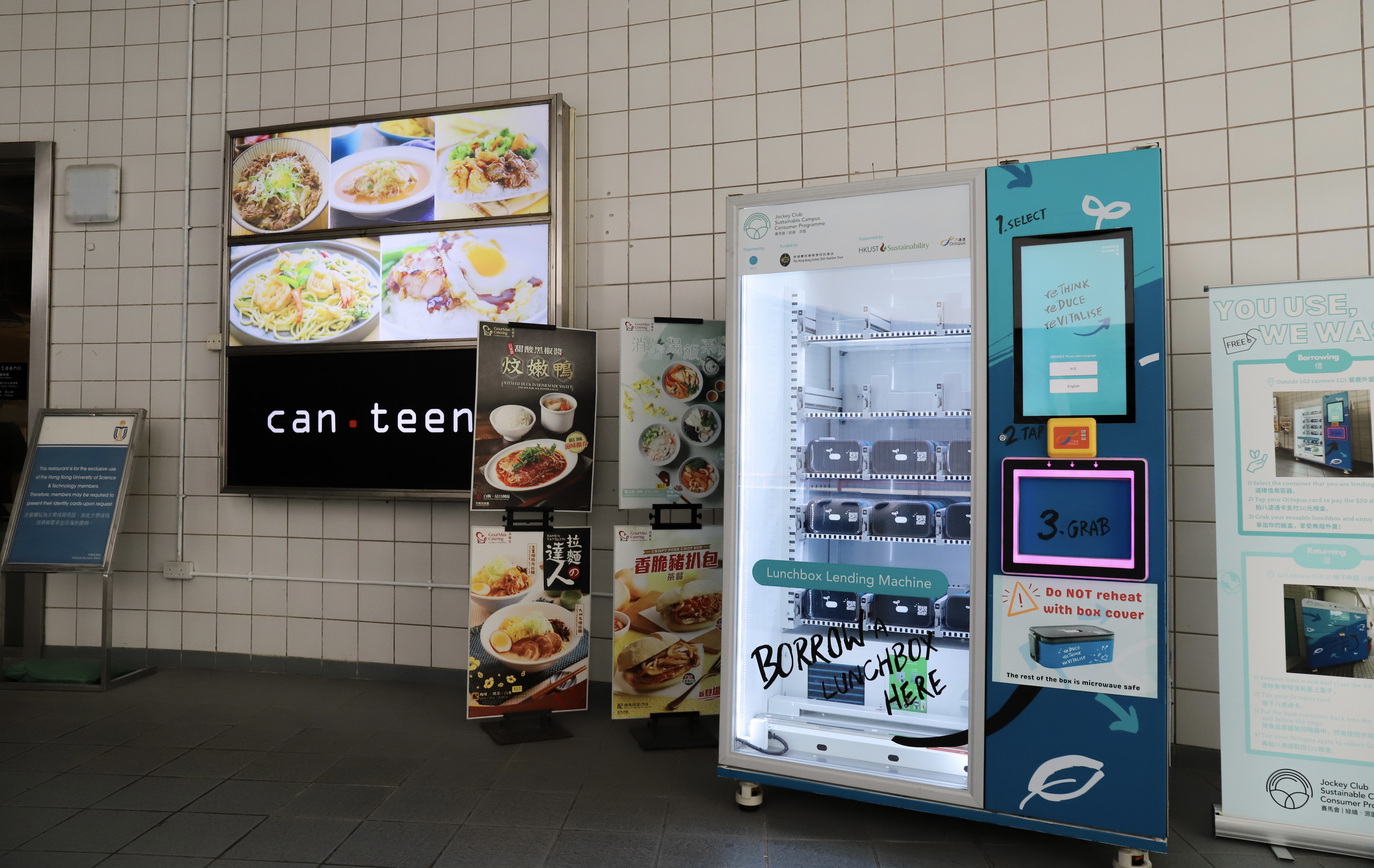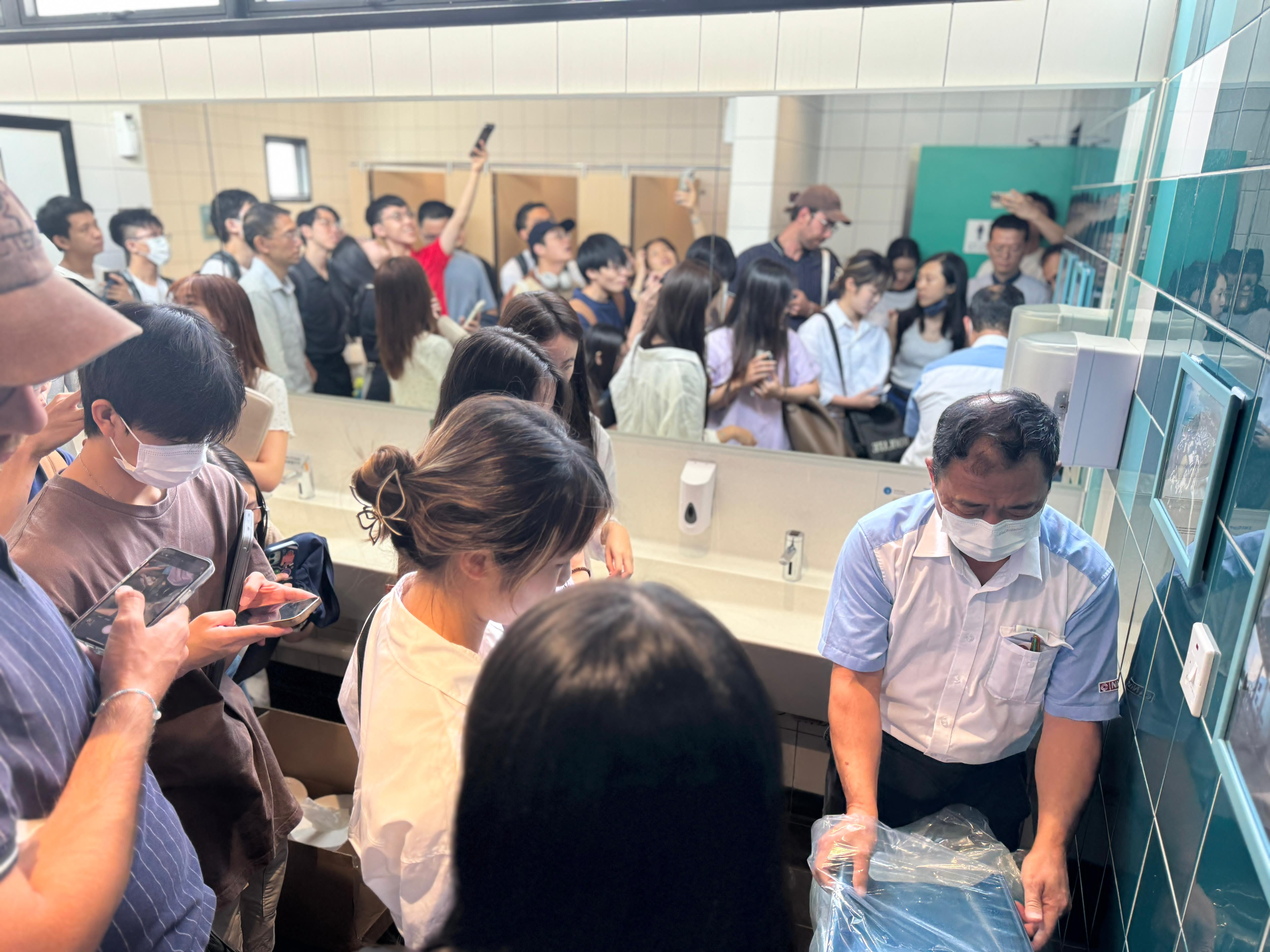Story of Interest
Bringing Life Cycle Assessment into Action: Students Assess the Sustainability of Campus Services
Teaching the Life Cycle Assessment (LCA) methodology and software skills often relies on technical lectures and detailed software demonstrations. To make the learning experience more engaging and impactful, Prof. Lu Zhongming and Dr. Meike Sauerwein presented their Year 3 undergraduate course, Life Cycle Assessment for Sustainable Development, with real-world sustainability challenges. Building on corporate collaborations in 2022 and 2023, the 2024/25 projects shifted focus to challenges found right within the HKUST campus environment.
Working in collaboration with the HKUST Sustainability/Net-Zero Office and the Campus Management Office (CMO), students were tasked with conducting LCAs for two key campus consumption systems. The first examined the HKJC Sustainable Campus Program’s reusable container lending machines located near campus canteens (Fig. 1). The second explored the environmental impacts of using disposable paper towels versus electric hand-dryers in campus restrooms (Fig. 2).
Students collected primary data on consumption patterns and engaged directly with stakeholders—ranging from service providers to everyday users. Using LCA tools, they analyzed environmental impacts and proposed strategies for improving the sustainability of these systems.
The results were then shared during presentations with the relevant campus offices. Following student recommendations, the Sustainability/Net-Zero Office adjusted the operation of the container lending machines—turning them off during off-peak hours to reduce unnecessary energy use. In response to students' findings on paper towel waste, the CMO also launched a campaign to discourage the use of multiple paper towels per handwashing (Fig. 3).

Fig. 1: Reusable container lending machine outside the campus canteen.

Fig. 2: CMO colleagues introducing the campus waste management system to students.
These projects not only provided students with valuable hands-on LCA experience but also demonstrated the real-world impact of academic learning. HKUST’s approach—blending theoretical knowledge with practical application—empowers students to develop data-driven, actionable sustainability solutions. The collaboration between students and university departments exemplifies how academic institutions can be active drivers of change in their own communities.

Fig. 3: Overuse of paper towels increases the campus’s waste burden.